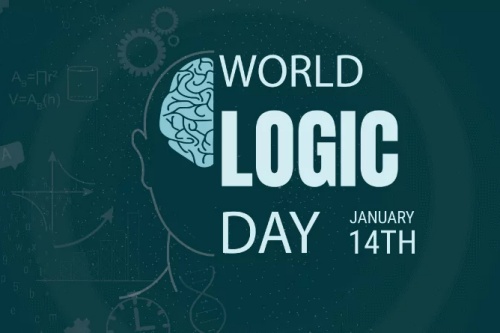
Message from Ms. Audrey Azoulay, Director-General of UNESCO, on the Occasion of World Logic Day文章源自英文巴士-https://www.en84.com/14112.html
教科文组织总干事奥德蕾·阿祖莱世界逻辑日致辞文章源自英文巴士-https://www.en84.com/14112.html
文章源自英文巴士-https://www.en84.com/14112.html
14 January 2023文章源自英文巴士-https://www.en84.com/14112.html
2023年1月14日文章源自英文巴士-https://www.en84.com/14112.html
文章源自英文巴士-https://www.en84.com/14112.html
On World Logic Day, we pay tribute to two eminent logicians of the twentieth century, whose fates converged on 14 January.文章源自英文巴士-https://www.en84.com/14112.html
文章源自英文巴士-https://www.en84.com/14112.html
值此世界逻辑日,我们向二十世纪两位杰出的逻辑学家致敬,他们的命运因1月14日这个日子交汇在一起。文章源自英文巴士-https://www.en84.com/14112.html
文章源自英文巴士-https://www.en84.com/14112.html
The Polish logician Alfred Tarski, was born on 14 January 1901, and the American-Austrian logician Kurt Gödel, died on 14 January 1978; each in turn left their mark on the discipline, for instance, Kurt Gödel was famous for his incompleteness theorems.
实际上,出生于 1901年1月14日的波兰逻辑学家阿尔弗雷德·塔斯基和逝世于1978年1月14日的奥地利裔美国逻辑学家库尔特·哥德尔,都在他们的学科中留下了自己的印记,比如库尔特·哥德尔著名的不完全性定理。
Beyond these historic figures and the discipline itself, the history of logic is intertwined with that of humanity. Logic is at the heart of a certain way of understanding the world, comprising induction, deduction, generalization and abstraction, which humanity has been practicing since its inception.
但是,逻辑学不限于这些人物,也不限于这门学科,它的历史与人类的历史融为一体。事实上,它是人类有史以来一直实践的某种体认世界的方式的根基所在,而这种体认世界的方式则由归纳、演绎、概括和抽象构成。
The scientific approach, in particular, epitomizes this. Stemming from logic, the sciences are thus common languages for humanity, enabling us to understand each other and collaborate together. With this in mind, UNESCO has supported the establishment of research centres such as the International Centre for Synchrotron Light for Experimental Science and Applications in the Middle East (SESAME), which has a particle accelerator for the study of light, and the European Organization for Nuclear Research (CERN), where the most successful research on particle physics has been carried out for decades.
这一点尤其体现在科学实践当中。诞生于逻辑的科学,因此成为人类的共同语言,人类由此得以相识相聚。有鉴于此,教科文组织支持创建了诸如中东同步加速器光源实验科学与应用国际中心(SESAME,在中东地区开展光源研究的粒子加速器)以及近几十年来谱写了粒子物理学最完备篇章的欧洲核研究组织(CERN)等研究中心。
Logic is the cornerstone of rational thought and is also at the heart of the human and social sciences promoted by UNESCO, in particular philosophy, because logic is the foundation of our critical thinking.
作为理性思维的基石,逻辑也是教科文组织所推动的人文及社会科学特别是哲学的核心所在:因为逻辑是我们批判性思维的基础。
This is why logic serves as an indicator to discern truth from falsehood. It thus provides a decisive response to another major contemporary issue, that of disinformation in the new informational spheres.
正因如此,逻辑最终可以发挥去伪存真的圭臬作用,并因此对当代世界另一个重大挑战即新的信息领域的虚假信息作出决定性的应对。
Thus, UNESCO has also made a commitment to strengthening critical thinking through media and information literacy. Our “Think Critically, Click Wisely!” media and information literacy curriculum, for example, provides the Organization’s Member States with support in the development of ambitious and innovative educational policies in this area. Teachers, media professionals and young people around the world are already benefiting from this training.
因此,加强这种批判性思维,也是教科文组织对媒体与信息素养事业的承诺。例如,在我们的“批判性思考,动脑筋点击”培训计划基础上,本组织的会员国在制定该领域雄心勃勃的创新教育政策方面得到了支持。 世界各地的教师、媒体工作者和青年已经从这些培训中受益。
All in all, World Logic Day is an opportunity for each and every one of us to strengthen our commitment to the development of knowledge and ethics, and to reaffirm our confidence in human reason.
总之,世界逻辑日为我们每一个人提供了一个契机,以加强我们对知识和伦理发展的承诺,并重申我们对人类理性的信心。

